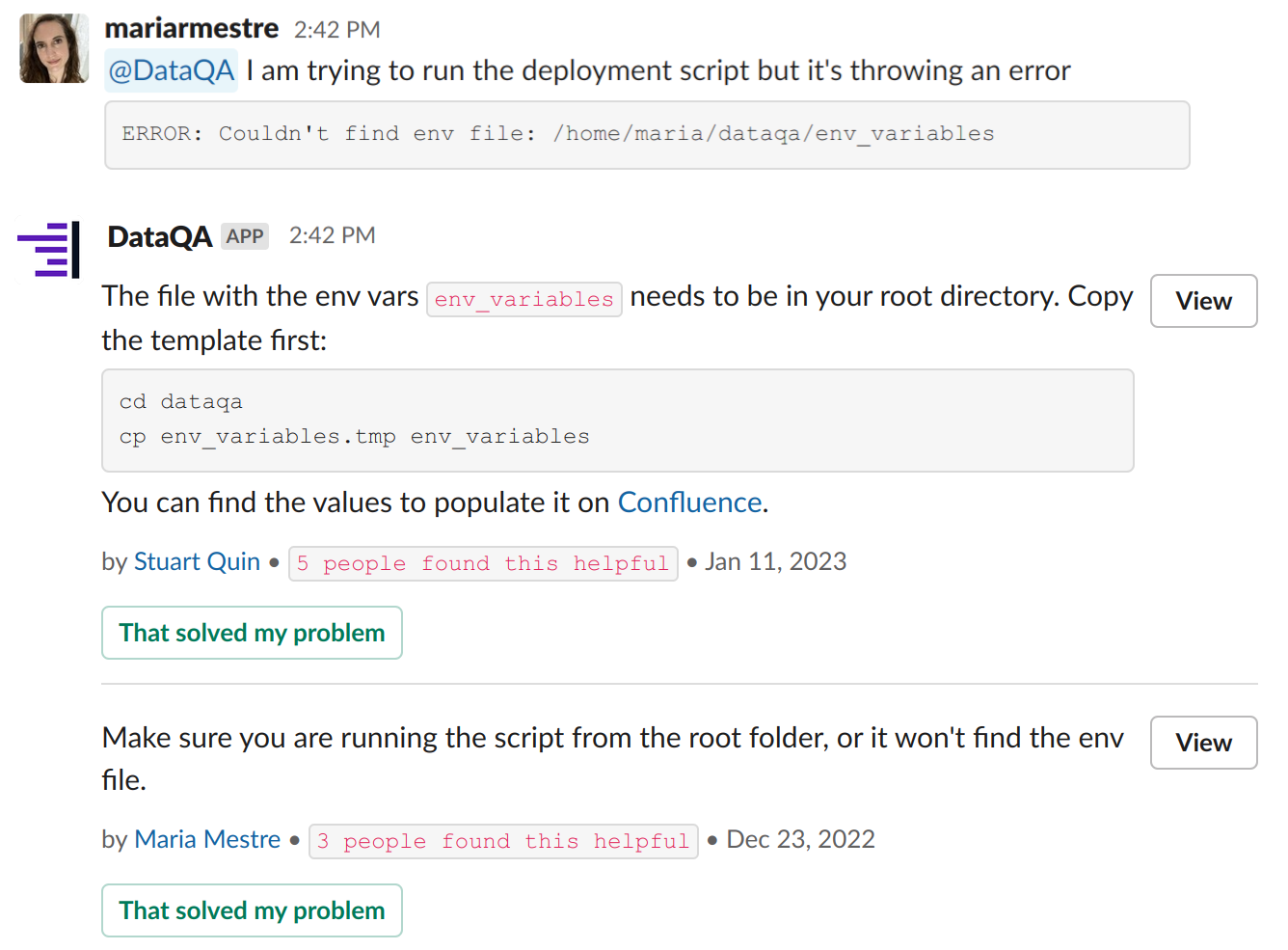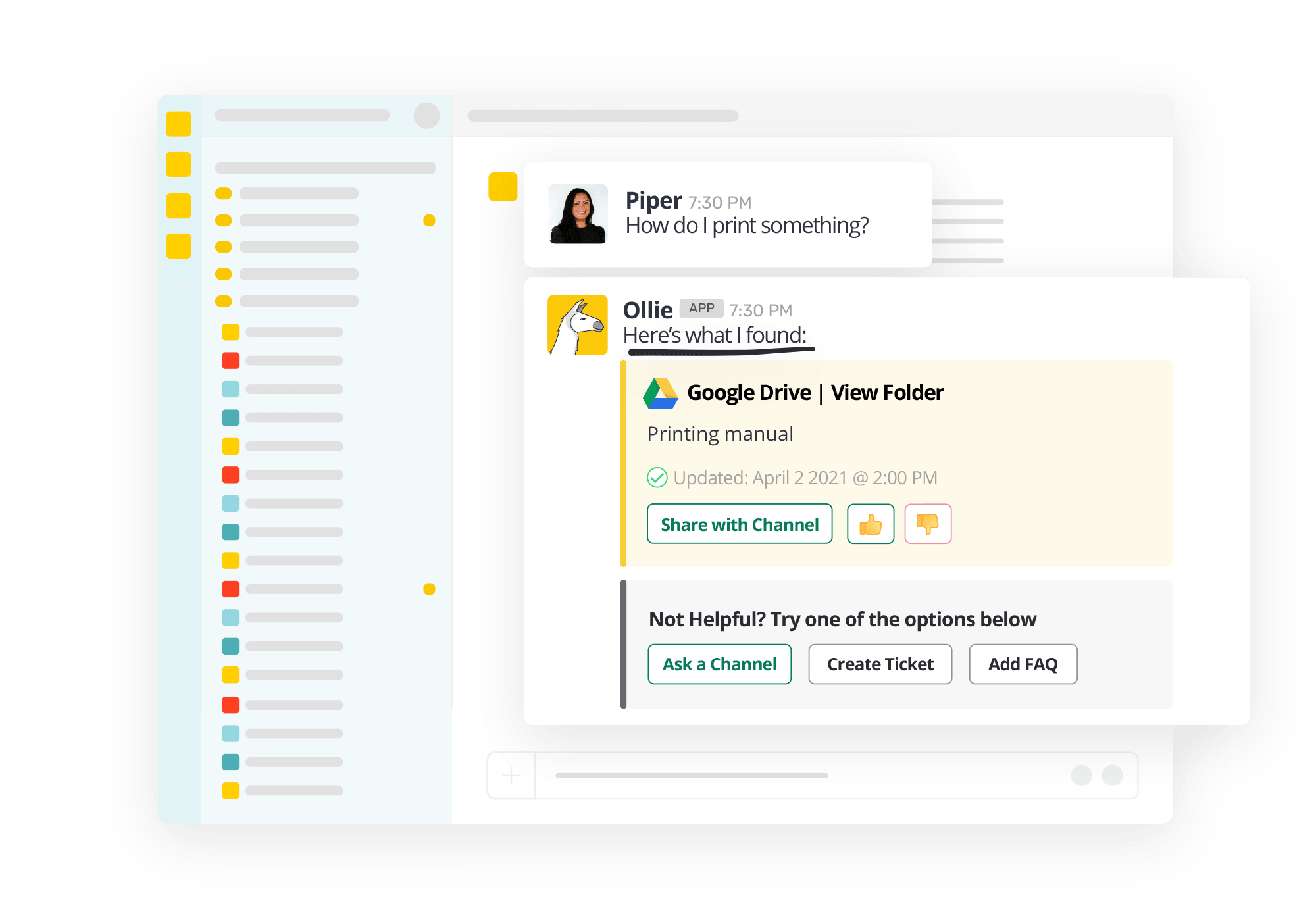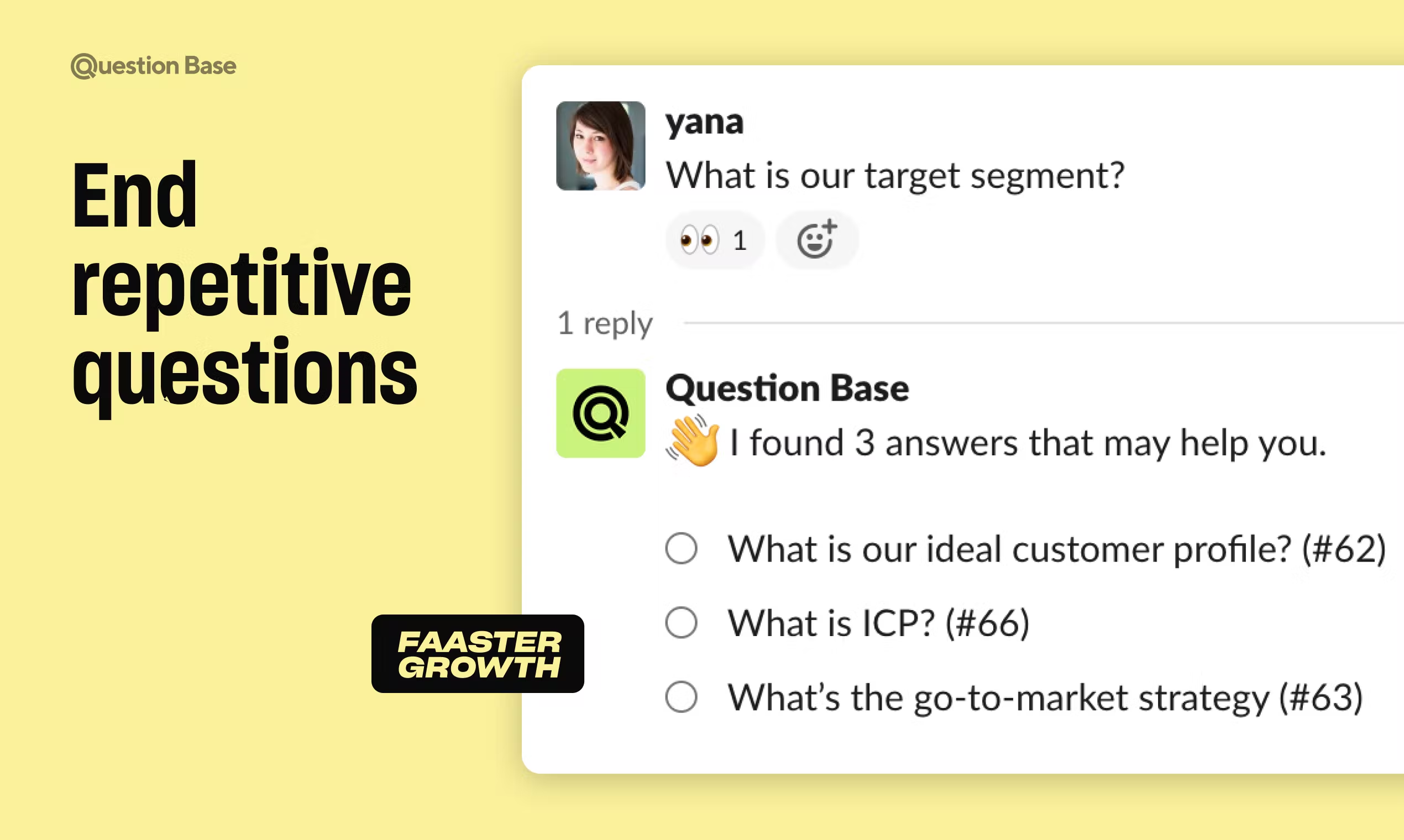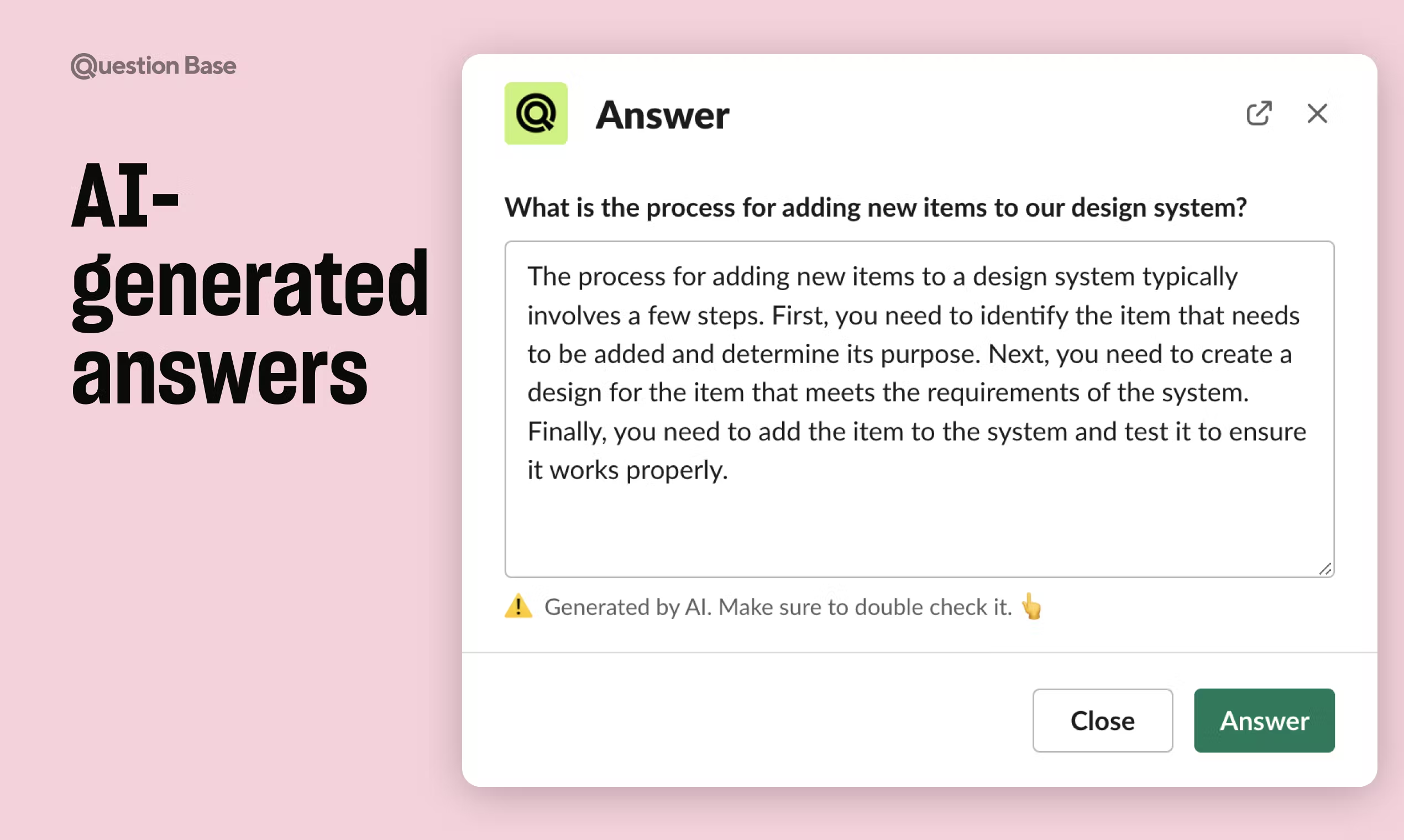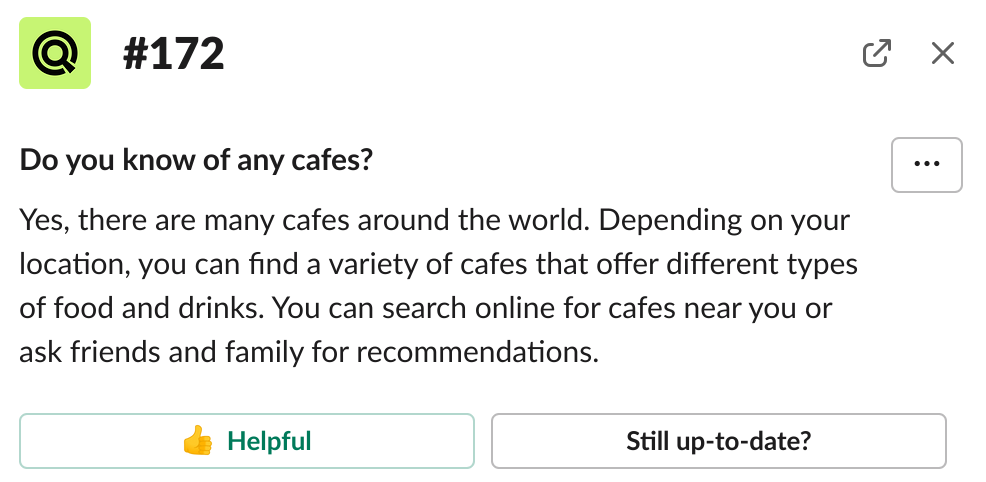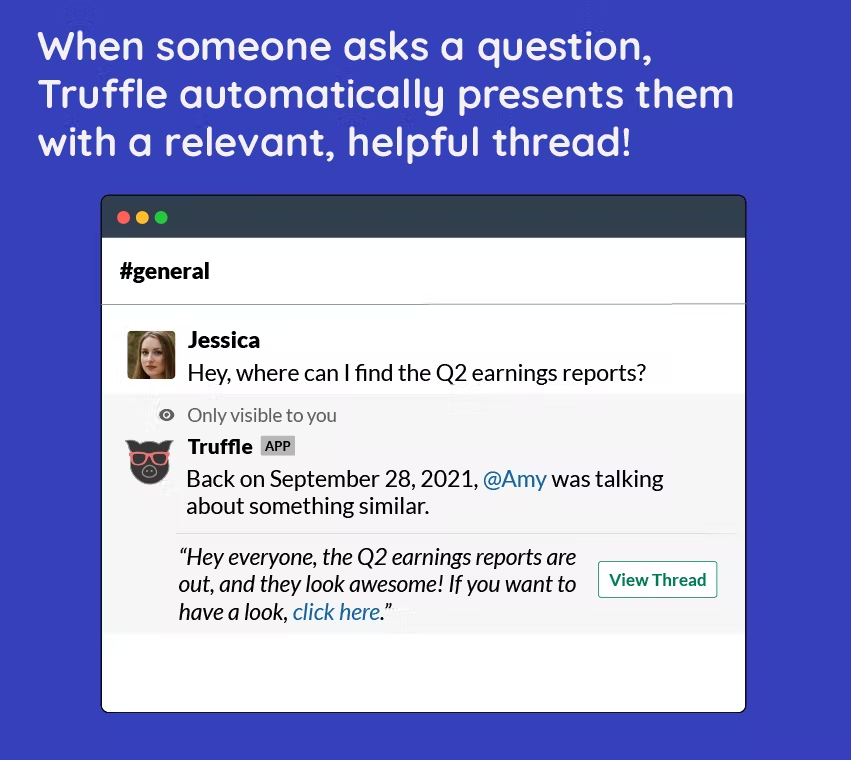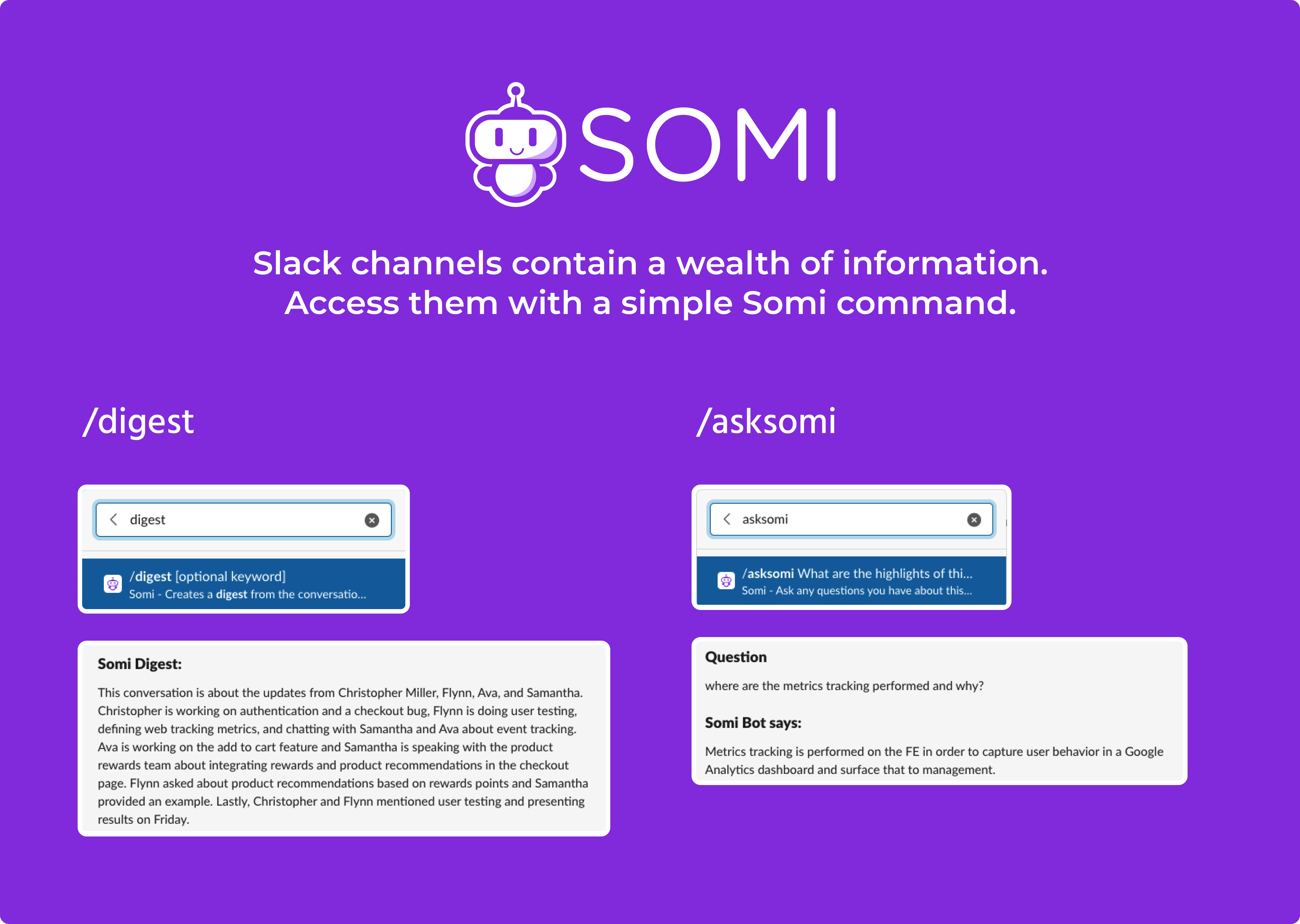What are knowledge base apps and why should you care?
In this new age of remote working, it has never been more important to provide the right tools for your team to be able to work asynchronously as efficiently as possible.
Slack has become central to many teams that rely on it to ask questions, share content and make decisions on a daily basis.
What was the rationale behind the new onboarding flow? How do you fix the issue with dropping vpn connection?
This internal company knowledge is contained within Slack, but hard to access unless you have time in your hands and are a search whiz. Companies end up with duplicate questions, channels, and frustrated employees that do not find the information they need.
There is a new generation of apps trying to solve the problem of capturing all this knowledge and make it easily accessible to everybody.
Although they work differently, the goal that most of them have is documenting important pieces of information in a structured or semi-structured format, such as a question-answer format, or a bunch of articles summarising specific issues that were discussed.
Slack knowledge base apps
How to assess KB apps
These are some dimensions we believe knowledge apps should be assessed against:
- Is it easy to integrate the app with an existing process?
- Ideally the use of a Slack app should not change the way your team works too much. This implies that it should not ask the user to leave Slack to either enter or check for information.
- Can you have multiple answers per question?
- This applies mostly for technical teams, where questions can have multiple answers depending on the context. For example, someone asking for help on a technical issue, e.g. the question "Why does my VPN connection drop all the time?" might get multiple answers depending on the operating system they're using, the VPN software and its version, the settings it has configured, etc.
- Does the app reward collaboration?
- In remote teams, it is important that information gets shared asynchronously in an efficient manner, so that people do not need to wait a long time for answers. In order to incentivise collaboration, there should be some way of checking what team member is being the most helpful.
- How easy is it to check all the extracted knowledge bases?
- The apps below all extract knowledge in some way or another, whether it be question-answers or snippets of knowledge. How easy is it to see everything the app has "learnt" from your Slack workspace?
- Is the knowledge extraction process automated?
- Knowledge can either be labelled and tagged manually by people, or it can be extracted automatically. Both ways have pros and cons. Automatic extraction can save you time, but does not have manual validation of the answers.
- Does it work on technical questions?
- When developers ask technical questions, it is common for them to share snippets of code or pieces of an error stacktrace. This needs to be supported explicitly.
- Does the app have a free version of free trial?
The results
We conducted some research into Slack apps offering knowledge base extraction functionality, some of them are more mature while others have just launched. The summary of our research can be seen below:
| App | Ease of process | Multiple answers | Reward collaboration | Ease of access to extracted knowledge | Automation | Support for technical questions | Free trial |
|---|---|---|---|---|---|---|---|
| Seismic | 🤔 | ❌ | ❌ | ✅ | ❌ | 🤔 | 🤔 |
| Question Base | ✅ | ❌ | ✅ | ✅ | ✅ | ❌ | ✅ |
| One Bar | ✅ | ❌ | ❌ | ✅ | ❌ | ✅ | ✅ |
| Kipwise | ❌ | ❌ | ❌ | ✅ | ❌ | ❌ | ✅ |
| Truffle | ✅ | ❌ | ❌ | ❌ | ✅ | 🤔 | ✅ |
| Ask Somi | ✅ | ❌ | ❌ | ❌ | ✅ | 🤔 | ✅ |
| DataQA | ✅ | ✅ | ✅ | ✅ | ❌ | ✅ | ✅ |
Seismic
Seismic is a Slack integration of the cloud platform Seismic, which is mainly aimed at sales teams. We did not install the app, as it was the only one in the list that required to formally contact someone at the company. The information we gathered comes mostly from the documentation and screenshots in the Slack app directory.
From this, we could not find evidence that this app uses any automation to extract knowledge bases from Slack. Similarly, it was not clear from the documentation whether users had to enter the knowledge bases outside of slide. Multiple answers per question did not seem to be supported, and neither was any tracking of team members' activity.
Question Base
This app is one of the newcomers of 2023, it launched on Product Hunt at the beginning of 2023 achieving the top spot on the day. Question Base bets heavily on automating the extraction of knowledge, as well as surfacing this knowledge. When we first tested it, it took a whole 48 hours until it had searched and scanned the contents of the channel we had added the app to.
The app seems to work on knowledge extracted from the Slack workspace, as well as generic knowledge that an AI bot could generate.
The app does not fully support the addition of questions that can have multiple correct answers, or questions that contain technical context (such as pieces of code). They do however offer a nice in-Slack browsing tool of all the FAQs.
In order to generate answers outside of the automated process, a modal needs to be filled by the user. The app does not autogenerate the answer from the contents on Slack.
One Bar
OneBar is one of the more mature products in this list, with a variety of products, such as a Chrome extension. This is one of the author's favourite product. Asking and answering questions are both done manually. However, the app manages to infer the actual question and the answer when saving a piece of content, instead of having to enter them both manually. All the questions and answers are then sent to their web app, where all the content can be explored.
The only aspects that are not included in this product is any type of tracking of team members' activity, or the ability to have multiple answers per question.
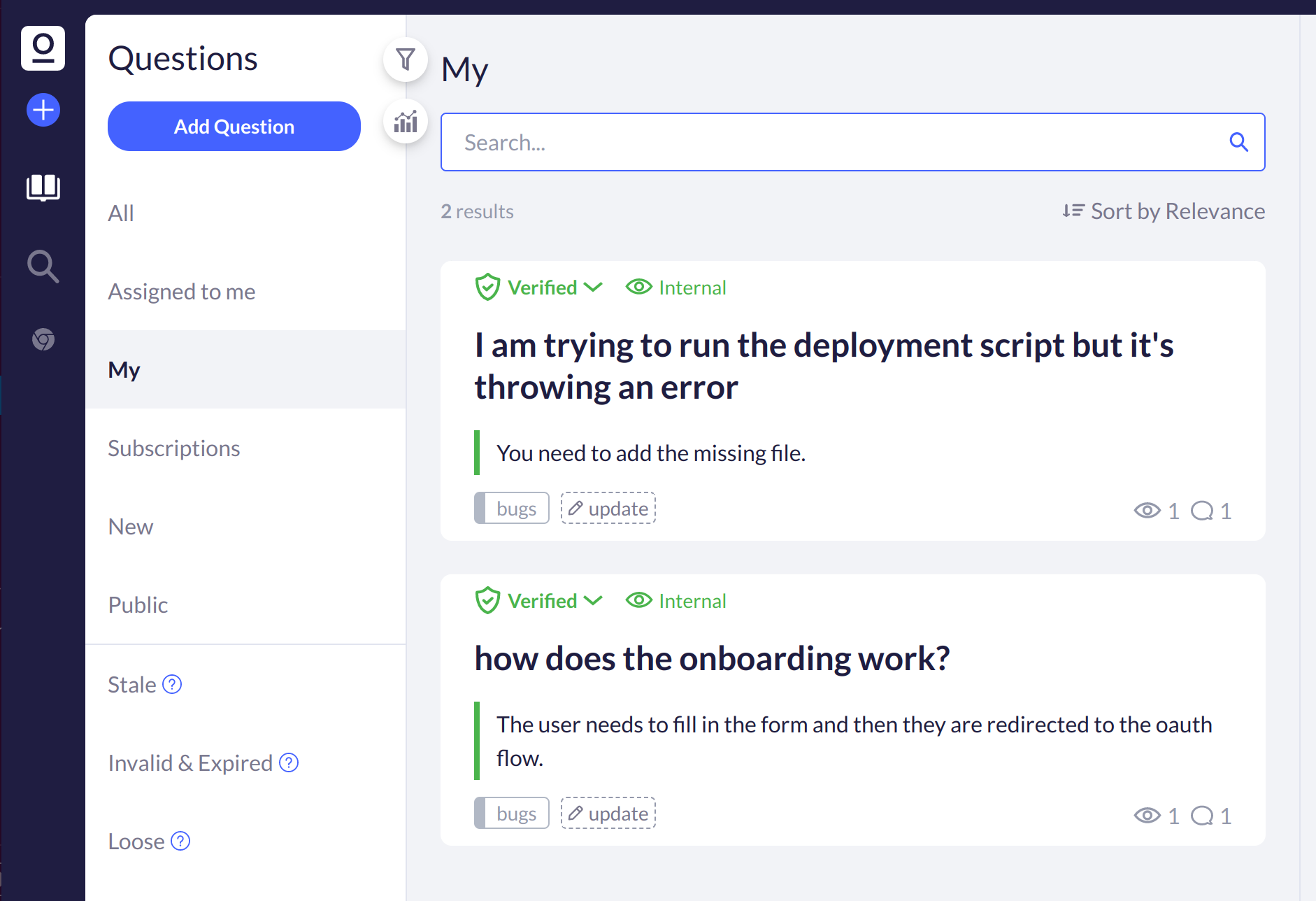
Kipwise
While we decided to include Kipwise in this list, its main focus is slightly different from the rest. Kipwise is an app which is mostly about saving and annotating content found on the web.
Kipwise extracts knowledge bases in the form of articles, rather than question-answers. Once someone saves content to Kipwise, they are prompted to fill in a wiki-style modal, which can be found inside of Slack, as well as on their external web app.
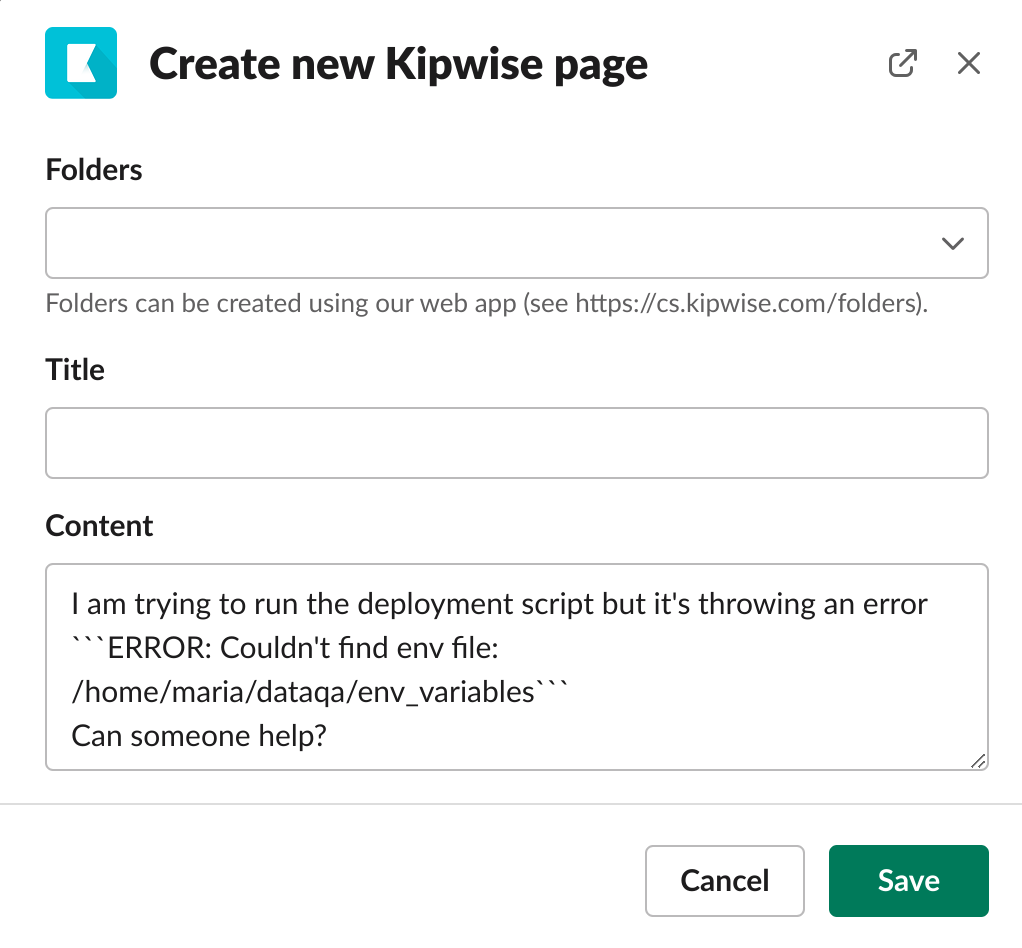
Questions with code snippets in the title are not supported, and neither are questions with multple right answers.
Our takeaway is that while it remains an excellent wiki-style knowledge-base product, Kipwise is not really meant to be used as a question-answer platform.
Truffle
Truffle is also one of the latest arrivals with a launch on Product Hunt less than a year ago.
Truffle works similarly to Question Base in that it processes all the content of a Slack channel to automatically extract threads and messages with useful information. It also offers links to helpful previous threads automatically when someone messages a channel with a question.
One differentiating feature with other apps is that the only way to interact directly with the app is via direct message, as it is not possible to talk to it openly in a public channel.
Truffle does not publish all the extracted useful threads anywhere. We did not manage to interact with it successfully during our tests.
Ask Somi
Ask Somi is also an app that takes on the job of automatically extracting all useful knowledge it finds on Slack. We could not use ut successfully on our workspace so we can only speak of the features they advertise on their website. Ask Somi lets you do 2 things with 2 simple commands: summarise the contents of a channel, and ask questions.
They do not show all the extracted knowledge anywhere, and there is no way to have multiple answers or even edit the answers the bot finds.
DataQA
DataQA is also a newcomer app of 2023. We have taken a different approach to most of the other apps in that we have first thought about solving the problem of knowledge management for developer teams. These teams tend to have slightly more complex questions with for example, code snippets or stacktraces. Technical questions rarely have one single answer that does not change with time. Instead, technical questions depend heavily on context and can thus have multiple accepted answers, like you would see on Stack Overflow.
In addition to this, we have also emphasised the importance of rewarding collaboration within remote teams. Making the app more sociable and gamified helps incentivise team members to help whenever someone asks a question.
